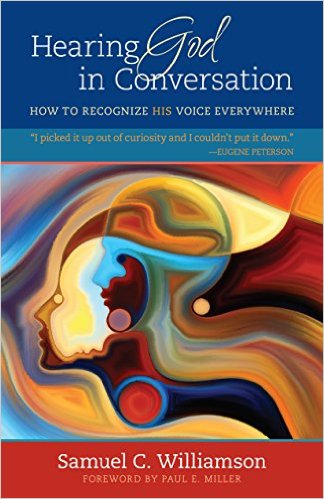|
Our
Plans, God’s Plans
by Sam Williamson
Last week’s ideal plan
didn’t translate itself into reality. Instead,
life happened. While on an errand, I met a man
and we talked for two hours; a friend called
to say her father is dying and I went to visit
him; and our water main sprung a leak,
drenching the basement.
I’m traveling west for a retreat, so last week was
filled with dozens of tasks to get ready. I use a
planning app that helps me prioritize action items
for each day. And then (hopefully) I complete all
the items. But last week I failed utterly.
At the end of that “life-is-full-of-surprises”
week, a well-known Christian blogger sent an email
describing how “elite” entrepreneurs and
executives accomplish their goals by eliminating
the competing distractions. I thought, “Distraction-free
life-management? Sign me up!”
And then I paused: How does it leave room for
God?
When Our Plans Go Awry
When Moses led Israel out of Egypt, he never
expected the plagues, Passover, and parted Red
Sea. When Elijah heard the voice of God on Mt.
Sinai, he expected to hear it like Moses did, in
the fire, wind, and earthquake. Instead he got a
still, small voice.
Because God loves to surprise us. You can’t put
him in a box. He won’t fit in your iPhone.
Gideon planned to attack the enemy with an army of
32,000, and God whittled it down to 300; Paul
expected to evangelize Asia, and God directed him
to Macedonia; and I planned to prepare for a
retreat, and God interrupted me with a stranger.
By all means, make a plan; but expect God to
disrupt it.
How Can We Know God’s Will
for Each Day?
Consider this famous proverb: “Trust in the Lord,
not your own ideas; acknowledge him in all your
plans, and he will direct your paths” (Proverbs
3:5–6 par). Meditating on this proverb produced my
paraphrase above and the following simple pattern
for getting God’s guidance:
After prayer, counsel, and wisdom: make a
plan.
Then: give that plan to God.
Finally: let God direct your path.
Giving our agenda to God means that he will
frequently guide us down paths our original maps
never envisioned. We trust in God to direct us,
not in our own ideas; we especially don’t want to
trust our own plans.
Plans are just nice starting points to get us
moving.
God’s most common guidance is done naturally:
sometimes with disruptions, sometimes through
circumstances, and often through surprises. The
non-formulaic nature of his guidance means we will
take risks, learn through trial and error, and
that we remain alert to God’s gentle nudges.
Which is perfectly fine. It means we remain in a
conversational relationship with God.
Which was his plan all along.
Sam
Sam has published numerous
articles and has written two books. He
has a blog site, www.beliefsoftheheart.com,
and can be reached at
Sam@BeliefsoftheHeart.com.
New book by Sam Williamson

Hearing
God in Conversation: How to Recognize His
Voice Everywhere published by Kregel
Publications, 2016,
available from Amazon
>
See book
review by Don Schwager
|

